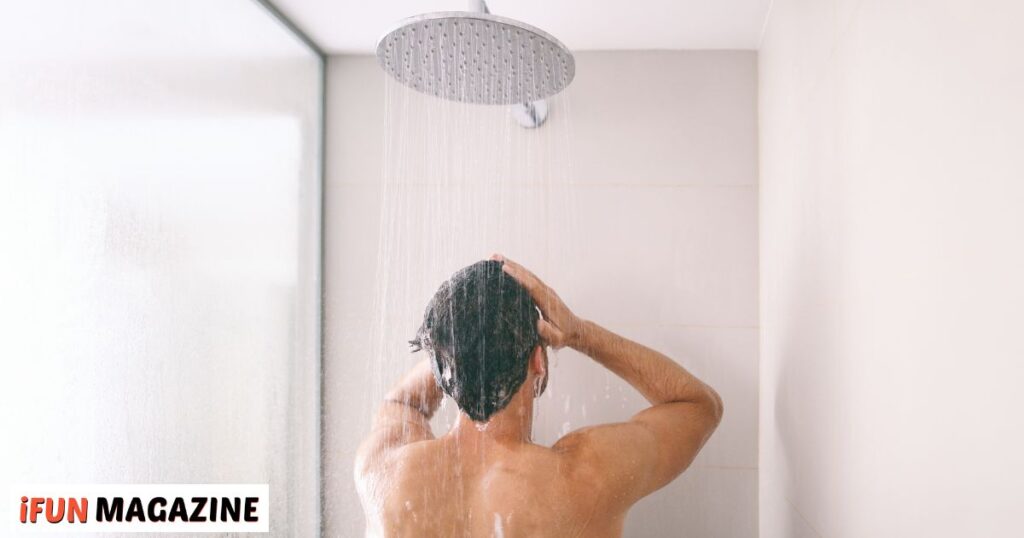The practice of mindfulness is being completely aware and involved at the moment. It contributes to you meditating on your physical sensations, ideas, and experiences without getting a judgment. You may settle your mind before going to bed by participating in mindfulness exercises in the evening. This exercise of mindfulness in the evening facilitates relaxation and lowers stress. You can strengthen your level of attention and concentration by applying these approaches.
Regular mindfulness practice may end in a more stable emotional state. Also, it expands self-awareness, facilitating growth in self-understanding. This understanding can contribute to improved relationships with others. By gaining clarity, mindfulness may assist in better decision-making. Developing a habit of concentrating in the evening is capable of significantly improving the quality of your sleep.
Obtaining more sleep improves your overall health.
What is a Mindful Evening Routine and What Is It Importance?
A mindful evening routine involves practices that help you wind down. It usually starts with simple activities like turning off electronic devices. Doing this reduces distractions and enhances focus on the present moment. Deep breathing exercises or soft stretching can refresh the body and mind.
Producing your ideas in a journal might help you optimize and prepare for rest. A mindful evening routine aids in easing stress accumulated throughout the Day.
Reducing stress before bed simplifies general repose and the quality of sleep. It serves to develop peace of mind and a feeling of gratitude. It can be very peaceful, to begin with a brief meditation session. Consistently following this routine enhances self-awareness and emotional balance.
As a result, it could lead to greater connection and more effective decision-making. Developing these actions can support long-term emotional and physical wellness. It encourages you for new challenges and fosters a positive tone for the next Day. A balanced and comfortable existence relies on having a mindful evening. Routine.
17 Ideas to Create a Mindful Evening Routine
After a stressful day at work, constructing a mindful nighttime routine can be an effective way to relax. Here are some ideas to help you calm down and find relaxation.
Turn Off Electronic Devices
Turning off electronic devices lowers distractions and helps you focus before bed. Spending up on screen time lowers exposure to blue light, which conflicts with sleep. Disconnecting enables you to take it easy and revel more in the present. Engaging in screen-free activities promotes relaxation before sleep. Try reading a book or having a conversation instead. These activities provide a break from screens and help ease tension.
Creating a tech-free zone in your bedroom can improve sleep quality, too. Choose activities that calm your mind and reduce stress levels. Remember, your goal is to prepare for restful sleep.
Practice Deep Breathing

Before hitting the bed, deep breathing allows you to relax and lower stress. To relax, emphasise taking deep, peaceful breaths and pushing them out. This exercise relieves your nervous system by transmitting signals to your brain. It can lower your heart rate and blood pressure for restful sleep. Even five minutes of deep breathing can enhance your evening routine. During the drill, try sitting peacefully with your eyes closed.
Take a breath slowly by opening your mouth after incorporating a deep breath through the nose. With every expiration, let go of tension and focus on each breath. Your brain and body are more ready for sleep at night should you breathe deeply.
Gentle Stretching
Stretching naturally decreases tension in your body and releases tense muscles. Rolling allows you to get more flexible and collect your entire body. Start with easy stretches to prevent strain or discomfort from overextending. Pay particular attention to your shoulders and any uncomfortable or tight regions.
To improve relaxation, utilize deep breathing in the flexing exercises. Before going to bed, attempt to stretch for at least five to ten minutes. This practice increases blood flow and oxygenates your muscles. Stretching eases stress built up during the Day, aiding relaxation. Gentle stretching improves comfort, making falling asleep effortless.
Keep a Gratitude Journal
Keeping a gratitude journal promotes positive thinking and eases evening stress. Writing down things you’re thankful for shifts focus from stress to joy. Reflecting on daily positives enhances your emotional well-being before bed. Journaling boosts mood and contributes to a more peaceful night’s sleep. Take five minutes to list three to five items each evening. This habit encourages positivity and reduces negative thinking patterns.
Over time, you’ll notice increased happiness and improved mental health. Recapping your Day’s gratitude helps cultivate mindfulness and reflection. Use a journal specifically for daily gratitude to track your growth.
Meditate for Few Minutes
Meditation clears your mind and offers tranquillity before bedtime approaches. Choose a quiet spot, sit comfortably, and close your eyes gently. Focus on simply being present and breathing calmly without judgment. Use guided meditation apps if you’re new to meditating. Try five to ten minutes of meditation to start your nightly routine. This practice enhances emotional balance and promotes mental clarity.
Regular meditation reduces stress and anxiety, creating peaceful evenings. As you meditate, observe any impending concerns, then let them go. Meditating helps your mind unwind, resulting in refreshing sleep.
Drink Herbal Tea

Drinking herbal tea provides soothing warmth and relaxation for bedtime. Choose caffeine-free teas like chamomile or peppermint for best results. These teas are known for calming effects and aiding digestion overnight. Sip your tea slowly, savouring the aroma and feeling relaxation deepen. Warm teas promote better sleep by lowering stress and soothing tension. Herbal teas present gentle flavours and calming warmth to ease your mind.
Drinking tea serves as a delightful evening ritual that signifies rest. This habitual act helps create peace before sleep. Pair tea time with gentle reading or calming music.
Listen to Calming Music
Listening to calming music eases stress and soothes your mind before bed. Choose slow-tempo music without lyrics to avoid distraction. Music with gentle sounds like piano or nature relaxes your body and soul. Use headphones or speakers to create a serene audio environment. Closing your eyes enhances the calming effect of the music. Play your music quietly, establishing a peaceful atmosphere for winding down.
Consistent listening before bed reinforces relaxation and signals restfulness. Discover playlists designed for relaxation and sleep for quiet nights. Music enhances your ability to unwind, helping you sleep.
Engage in Light Reading
Light reading helps your mind relax and prepare for sleep at night. Choose uplifting or simple books to avoid overstimulation. Reading transports you into stories, letting worries fade away. Gentle stories or articles enhance relaxation, easing the transition to sleep.
Keep a favourite book or magazine on a bedside table for convenience. Incorporate regular light reading before bed for enhanced relaxation. Even ten minutes of reading can contribute to better sleep quality. Avoid digital screens to prevent interference with your sleep cycle. Light reading calms your mind and supports peaceful evenings.
Visualize Positive Scenarios
Visualizing optimistic scenarios evokes calmness and reduces stress at bedtime. Close your eyes and imagine serene landscapes or joyful experiences. Visualization allows you to see and feel things that make you happy. Focus on details, like sounds and smells, to enrich your imagery.
This practice guides your mind to pleasant thoughts, easing stress. Even a few minutes of positive visualization can improve mood. Engaging your senses solidifies the positivity and calms your nerves. Use this technique as part of your routine to foster happiness. Visualization prepares your mind for restful, dream-filled sleep.
Write Down Tomorrow’s Tasks
Writing down tomorrow’s tasks clears your mind and reduces anxiety effectively. Organize a to-do list to prioritize tasks and ease pre-sleep worries. Make your list simple, focusing on three to five important functions. This practice helps create structure and informs your following Day.
Jotting down tasks prevents forgetfulness and alleviates worry. Updating your list can help you brainstorm solutions and tackle challenges confidently. Knowing what to expect promotes relaxation and encourages restful sleep. Use a journal or planner to organize thoughts in a structured way. Ensure your task writing process is calm and mindful.
Take a Warm Bath

Taking a warm bath relaxes muscles and provides soothing comfort before sleep. Heat from warm water calms your body and eases tension. A bath’s warmth promotes circulation and lowers stress levels. Incorporate calming lotions or bath salts for added relaxation.
Let your muscles unwind as you soak, engaging in deep breathing. Even a short fifteen-minute bath can prepare your body for rest. This ritual eases stress and improves your sleeping atmosphere. Use dim lighting or candlelight to deepen the relaxing experience. A warm bath offers peace, signalling a smooth night’s sleep.
Declutter Your Sleeping Space
Decluttering your sleeping space creates a calming environment before bed. A tidy room ensures reduced distractions, promoting relaxation and ease. Keep surfaces free of clutter to enhance peace and organization. A clean space encourages better rest and reduces anxiety or stress. Arrange furniture to promote a transparent and open atmosphere. Remove items unrelated to restful activities, like work or electronics.
Maintain a balance of neatness and comfort for a sleep-friendly setting. Engage in daily tidying to support long-term relaxation and orderliness. Decluttering contributes to restful sleep by offering tranquillity.
Use an Aroma Diffuser
An aroma diffuser fills the room with calming scents, enhancing relaxation. Choose essential oils like lavender or chamomile for peaceful sleep. Aromas from diffusers promote a serene atmosphere and reduce stress. The room’s gentle scents soothe your mind and prepare you for rest.
Use a few drops of oil in the diffuser for moderate fragrance. Aromatherapy before bed creates tranquillity and aids sleep quality. Experiment with essential oil blends based on personal scent preference. Maintain proper care of your diffuser for
Focus on the Present
Focusing on the present moment improves your evening mindfulness. Pay attention to your surroundings and your immediate sensations. Mindful breathing helps bring awareness to the current moment. Use deep breaths to ground yourself and clear your mind. Avoid distractions like phones to stay present in your activities.
Engaging fully in tasks helps reduce stress and heightens your experiences. Practising gratitude enhances present-moment awareness and positive thinking. Acknowledge your feelings and thoughts without judgment as part of mindfulness.
Let go of past and future worries to embrace the now. Implement this practice consistently for increased well-being and peace.
Reflect on Your Day
Reflecting on your Day helps you process events and emotions for better understanding. Take time each evening to recall the Day’s positive moments. Consider challenges faced and lessons learned for personal growth. Write reflections in a journal to organize your thoughts clearly. This practice encourages self-awareness and emotional intelligence development. Recognize achievements and identify areas for improvement with care.
Reflecting enhances your ability to set positive intentions for tomorrow. Appreciation of daily moments contributes to overall happiness and well-being. Silence or quiet music aids in deep reflection during this time. Embrace reflection as a nightly habit to foster mindfulness growth.
Limit Caffeine After Lunch
Avoiding caffeine use after lunch recommends more sleep and relaxation in the evening. If this substance is taken later in the Day, it may clash with sleep cycles. For better well-being, choose caffeine-free beverages such as herbal teas. Keep an eye on the caffeine sources you utilize, such as chocolates and drinks, to maintain moderation. A regular caffeine routine helps manage energy and sleep balance effectively. Try replacing caffeine with water to meet hydration needs.
Limiting intake allows your body to wind down naturally each evening. Caffeine reduction assists in reducing anxiety and improving calmness before bed. Establishing a caffeine-free routine fosters long-lasting healthy habits. Adapt this practice for improved restful nights.
Maintain a Consistent Sleep Schedule

Maintaining a consistent sleep schedule improves rest and overall health. Set regular sleep and wake times to regulate your body clock effectively. Consistency helps synchronize your sleep patterns, reducing tiredness. A structured schedule supporting eight hours enhances energy and focus. Allowing variety in bedtime can disrupt sleeping rhythms and routines. Establish relaxing pre-sleep activities to ease the transition into rest.
Consistent sleep routines improve memory, concentration, and mood positively. Even on weekends, stick to regular schedules to maintain clock stability. This practice provides balance and promotes physical and mental wellness. Achieve more restful nights with structured sleep habits.
FAQs
What is a Self-Care Evening Routine?
A self-care evening routine involves relaxing activities that prepare you for restful sleep.
Why is a Mindful Evening Routine Important?
A mindful evening routine reduces stress and prepares the mind for restful sleep. Minimizing nervous thoughts and establishing a peaceful atmosphere inspires relaxation. Recurrent practice improves overall health and well-being by setting up sleep cycles. Mindful actions aid individuals in maintaining a state of balance and improving the stress of regular daily life.
What is the Best Evening Routine?
The best evening routine combines relaxation and mindfulness to promote restful sleep naturally.
What are Mindfulness Activities?
Being entirely present is an essential component of mindfulness exercises like yoga, meditation, and mindful breathing. These are several easy exercises that relax the mind and increase awareness while limiting stress. To enhance your focus and relaxation, apply mindful eating, walking, or listening. These types of exercises support better mental clarity and control of feelings for overall well-being.
What is the ideal room temperature for sleeping?
The ideal room temperature for sleeping is between 60 and 67 degrees Fahrenheit. This range helps maintain comfort and support your body’s natural sleep cycle. Adjust your thermostat for a more relaxed environment to promote more profound and more restful sleep.
Can exercise help improve my sleep quality?
Yes, regular exercise enhances sleep quality by reducing stress and promoting relaxation. Exercise helps maintain a healthy sleep pattern, making falling asleep easier.
Are there certain foods that promote better sleep?
Yes, foods like almonds, bananas, and warm milk contain nutrients that aid better sleep. Foods high in magnesium and tryptophan can also naturally improve sleep quality. Consider consuming oatmeal or cherries to help regulate your sleep-wake cycle.
Final thoughts on relaxing evening mindfulness routine ideas
Mindfulness routines help you relax and enjoy restful evenings, reducing stress effectively. Focus on activities that calm your mind, like reading or meditating. These routines can improve mental health, leading to better overall well-being.
Consistency is essential; practice these activities regularly for the best results. Maintain a gadget-free environment during your evening routine for optimal relaxation. Small changes in your routine can make significant differences in your emotional state.
Listen to soothing music or enjoy a warm bath for additional comfort. Reflect on the Day’s events briefly without overthinking future worries. Organize your schedule to include these calming moments each Day.
Remember, mindfulness practices should be adjusted to fit personal preferences and needs.




